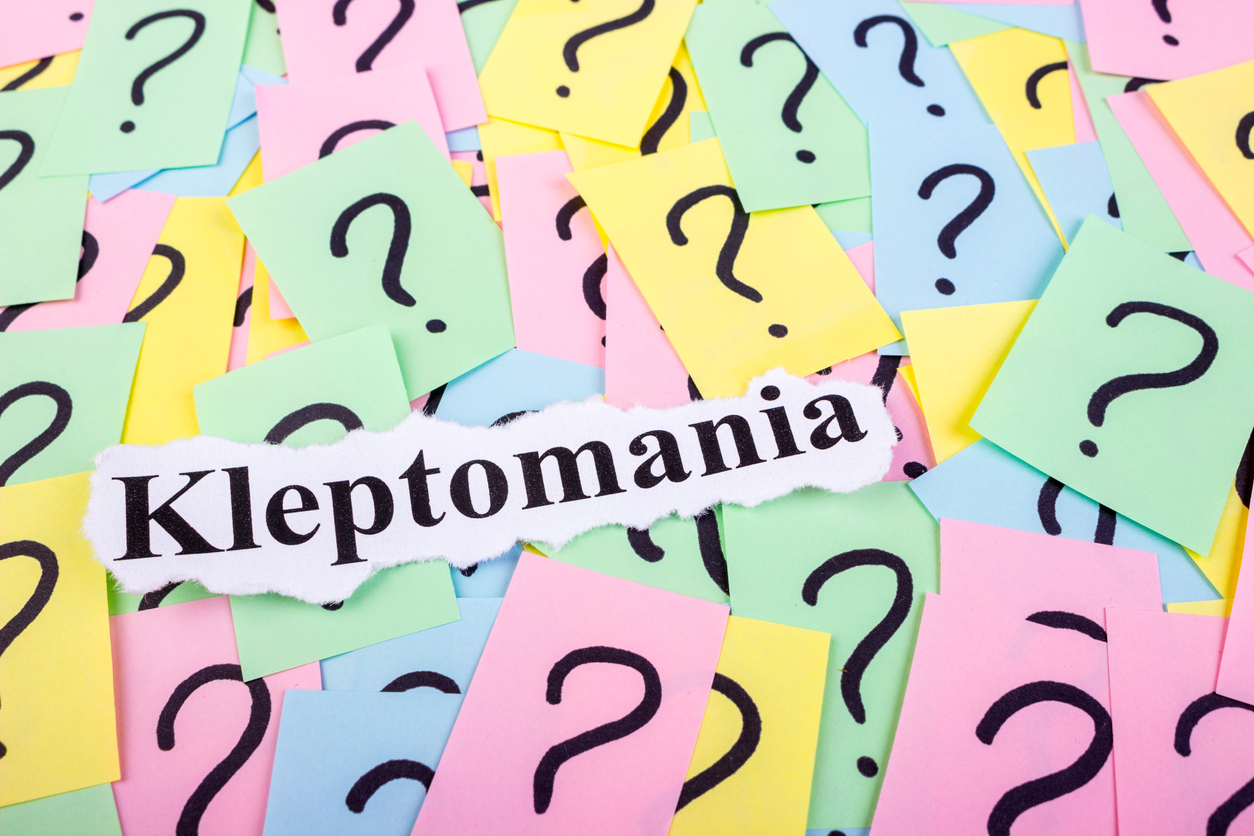Kleptomania
Most people are familiar with the term kleptomania, a real, but rare, mental health condition. The key feature of kleptomania is the repeatedly acting on impulses to steal items even though the items are not needed.
As noted in Diagnostic and Statistical Manual of Mental Disorders*, “kleptomania is exceedingly rare, whereas shoplifting is relatively common.” Kleptomania occurs in approximately 0.3%–0.6% of the general population.
A person with kleptomania does not usually preplan the theft and does not work with others. The stolen objects typically have little value and the person often gives or throws them away. Kleptomania is different from ordinary theft or shoplifting. Ordinary theft is typically motivated by the usefulness or value of the item or for some, especially adolescents, may be motivated as an act of rebellion or done on a dare.
 Kleptomania is defined by the feelings associated with the stealing – the urge to steal, a feeling of tension before stealing and a feeling of relief during or immediately afterward. According to the DSM-5, people with kleptomania “typically attempt to resist the impulse to steal, and they are aware that the act is wrong and senseless. The individual frequently fears being apprehended and often feels depressed or guilty about the thefts.”
Kleptomania is defined by the feelings associated with the stealing – the urge to steal, a feeling of tension before stealing and a feeling of relief during or immediately afterward. According to the DSM-5, people with kleptomania “typically attempt to resist the impulse to steal, and they are aware that the act is wrong and senseless. The individual frequently fears being apprehended and often feels depressed or guilty about the thefts.”
It often begins in adolescence, but can occur among children, adolescents or adults. Without treatment, symptoms can occur continuously or can occur in brief sporadic episodes. It is three times more common among females than males. It can lead to legal, family, career, and personal difficulties.
Kleptomania is categorized as an impulse control disorder. However, research has shown it has features in common with addictive disorders (substance use disorder, gambling disorder) and obsessive-compulsive disorders. People with kleptomania may also have other conditions, such as depression or anxiety. One study of college students found that urges to steal were associated with worse depressive symptoms, higher levels of stress and several psychiatric disorders.
A. Recurrent failure to resist impulses to steal objects that are not needed for personal use or for their monetary value.
B. Increasing sense of tension immediately before committing the theft.
C. Pleasure, gratification, or relief at the time of committing the theft.
D. The stealing is not committed to express anger or vengeance and is not in response to a delusion or a hallucination.
E. The stealing is not better explained by conduct disorder, a manic episode, or antisocial personality disorder.
From DMS-5 (Diagnostic and Statistical Manual of Mental Disorder, 5th Edition)
Kleptomania is diagnosed based on signs and symptoms and treatment typically involves psychotherapy, medication or both. Cognitive behavioral therapy, a type of talk therapy, can help people to understand the impulses and unhealthy beliefs and behaviors and learn how to respond in healthy, positive ways. Some medication, such as antidepressants or medication used to reduce urges in people with addictions, may be helpful. However, there are no specific medications approved by the FDA for kleptomania. Therapy or medication may also be helpful in treating other conditions occurring at the same time, such as depression or anxiety.
Finding Help
Online locator services for various types of mental health professionals:
Find a Psychiatrist American Psychiatric Association
SAMHSA Treatment Locator Substance Abuse and Mental Health Services Administration, U.S. Dept. of Health and Human Services.
Finding a Therapist Psychology Today (Listings for psychologists, psychiatrists, therapists, counselors, group therapy and treatment centers)
References
- *American Psychiatric Association Publishing. Diagnostic and Statistical Manual of Mental Disorders, 5th edition. 2013.
- Grant JE, et al. Characteristics and correlates of stealing in college students. Crim Behav Ment Health 2016, 26(2):101-9.
- Grant JE, Odlaug BL, Kim SW. Kleptomania: clinical characteristics and relationship to substance use disorders. Am J Drug Alcohol Abuse. 2010, 36(5):291-5.
- Kim, HS, et al. Kleptomania and Co-morbid addictive disorders. Psychiatry Res. 2017, 250:35-37.
